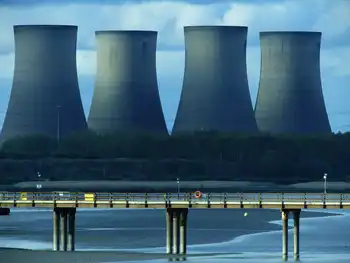This green energy boom sparks fears
By The Independent
Protective Relay Training - Basic
Our customized live online or in‑person group training can be delivered to your staff at your location.

- Live Online
- 12 hours Instructor-led
- Group Training Available
And the government - the main driver behind the boom - is taking note.
This month it imposed a half-year moratorium on new "green" energy projects in a bid to sift out those with serious financing and prevent a vital Black Sea bird migration route from being built over with wind farms.
"Too many tickets have been sold for this show," Economy and Energy Minister Traicho Traykov told an investors' forum earlier this month.
"We need to get the sector in order," he said.
The number of "green" energy projects in Bulgaria has exploded from almost nil just a few years ago to a proposed 12,000 megawatts (MW) from wind farms, solar energy parks and small hydropower stations, a government expert said.
That figure is equal to Bulgaria's current installed capacity and would be impossible to handle by the grid.
Experts agree that many of the planned projects will never actually come to fruition due to a lack of funding.
The current boom originates in a European Union-wide agreement under which Bulgaria has said 16 percent of electricity consumption will come from renewable energy sources by 2020 compared with under eight percent now.
The government has ordered the national electricity company and private utilities to connect all green-power capacity to the grid as soon as it is up and running and buy power generated in this way at fixed preferential prices.
With such attractive incentives in place, investors - many still smarting from the burst bubble in Bulgaria's construction sector - appear to see the renewable energy sector as a sure-fire return on their money.
Operators have already connected some 350 MW from wind turbines and solar batteries and signed preliminary contracts to connect a further 1,451 MW.
This will practically fill the whole capacity of the network, said Georgy Mikov, executive director of national electricity company NEK.
Moreover, NEK estimates show that about 2,000 MW of green sources would be sufficient for Bulgaria to meet its 16-percent green-power target by 2020.
But the renewable energy producers themselves say no less than 5,000-6,000 MW would be necessary.
The moratorium will give the government time to win approval for a national plan for the development of renewables by 2020, said energy minister Traykov.
The government is particularly keen to reduce harm to the Black Sea Via Pontica bird migration route, a prime spot for the construction of wind parks.
It also seeks to curb wind farm construction in protected nature zones and solar energy park installations on fertile farmland.
The European Commission last year launched an infringement procedure against Bulgaria for allowing wind turbines on the Via Pontica route.
The authorities also want to be able to select the more serious projects with secure financial backing from the mass of applications. One way would be to impose expiry deadlines on construction permits, experts suggested.
If operators know which areas are designated for green-power development, they will be better able to upgrade the grid in that area and connect the new capacities, officials said.
Environmental organizations are supporting the curbs, with Bulgarian group For The Nature and WWF Bulgaria saying in a statement: "We fully support the development of renewable energy but not at the expense of protected territory."











